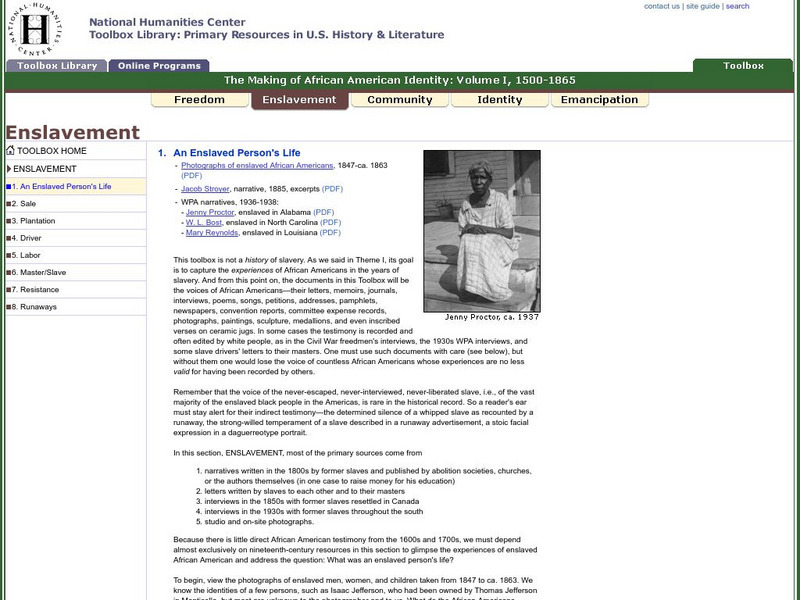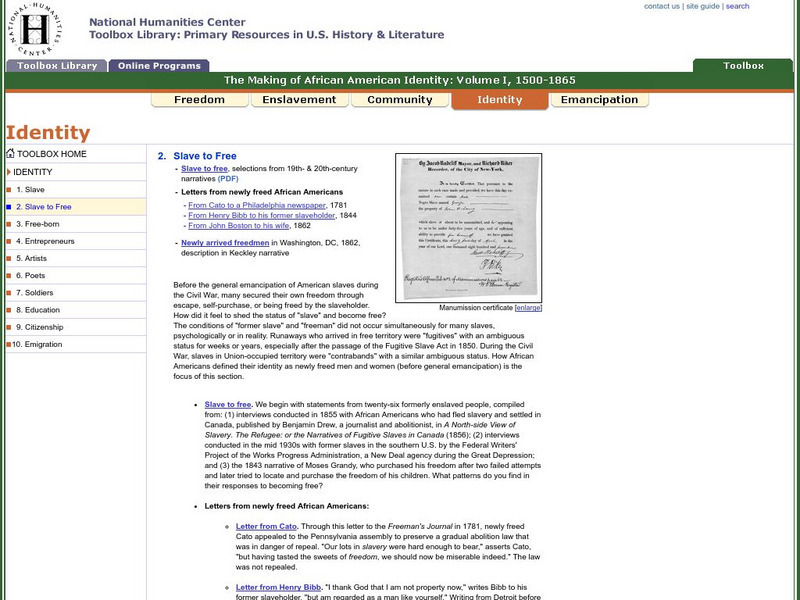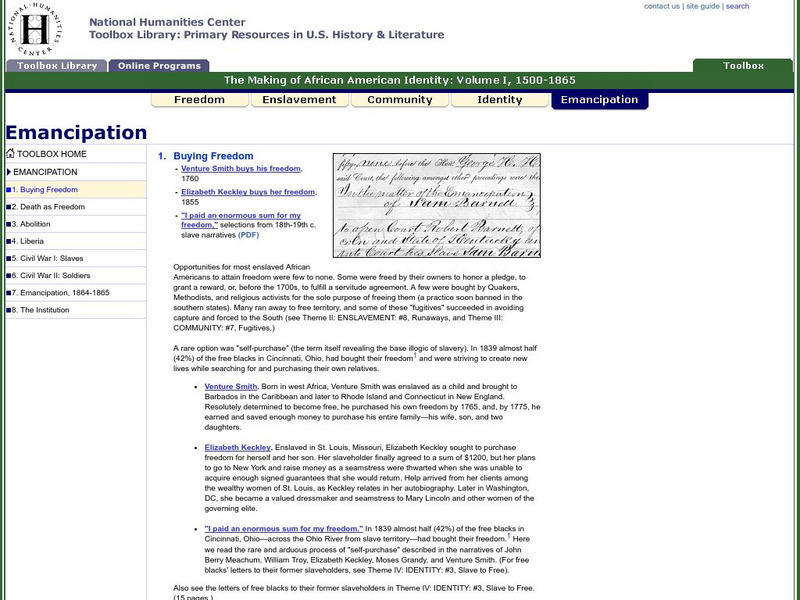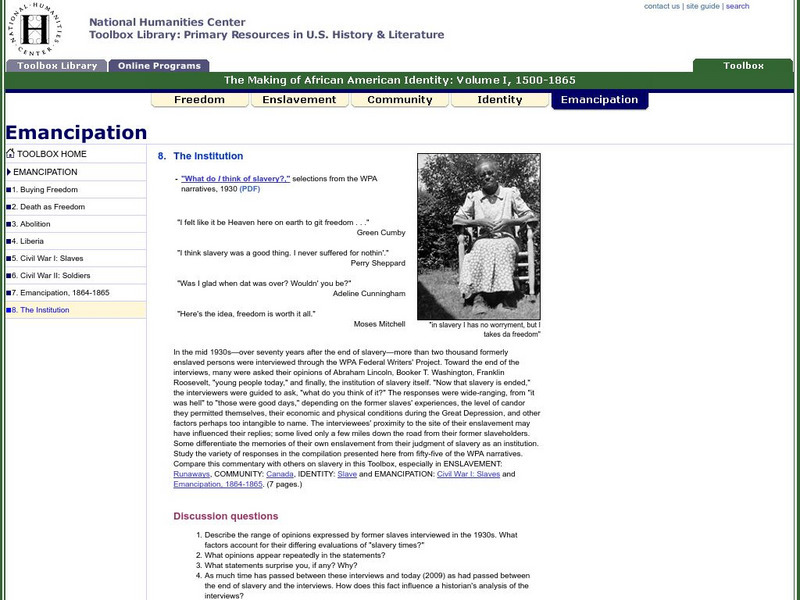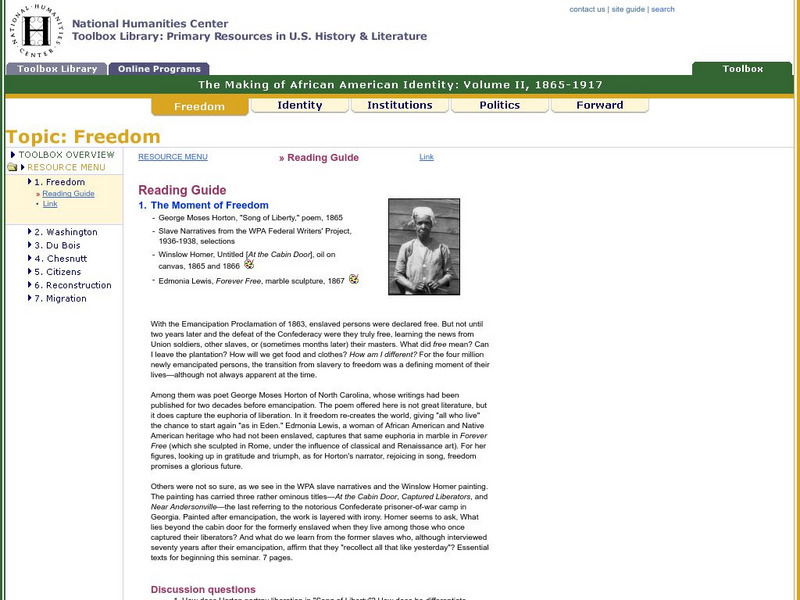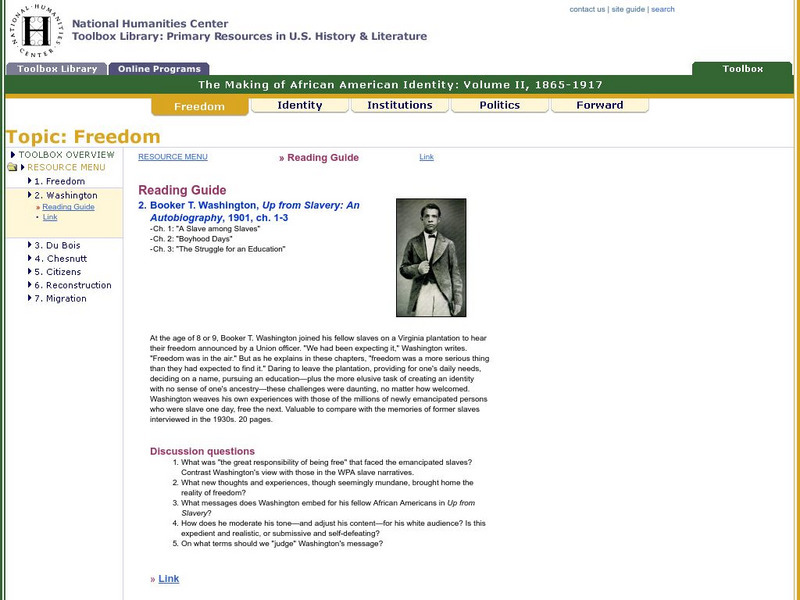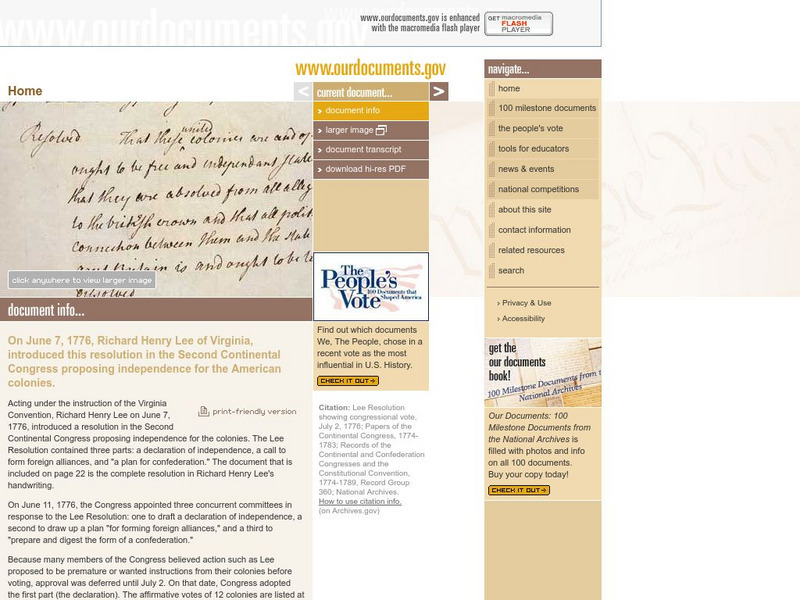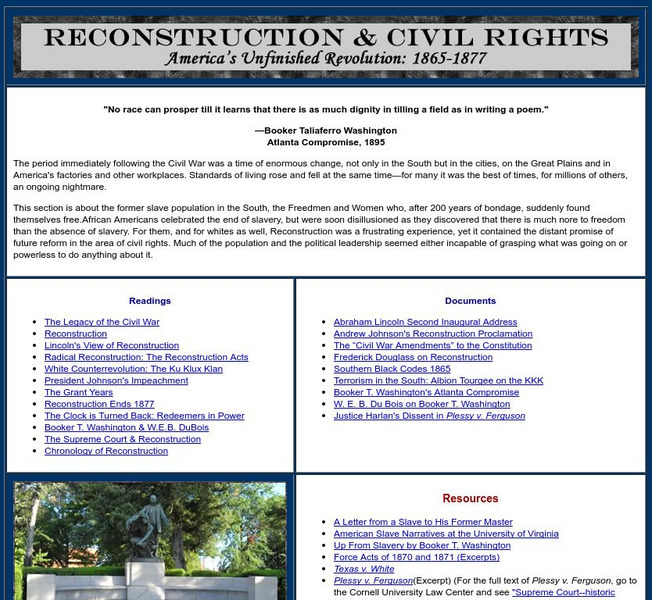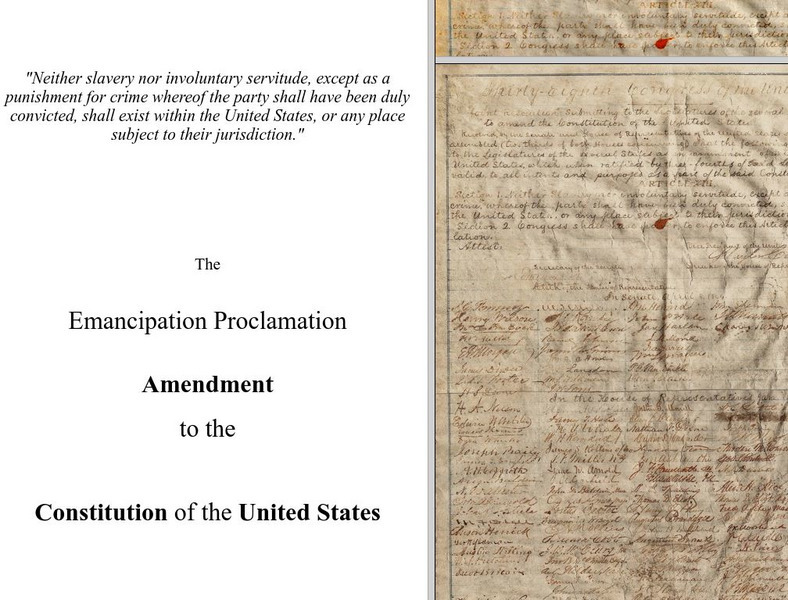Cornell University
Cornell University: Library: I Will Be Heard: The Emancipation Proclamation
The Emancipation Proclamation changed the focus of the Civil War. Read about its importance, but also its inability to free a single slave in the South. Find a link to Abraham Lincoln which explains his change of thinking about the only...
National Humanities Center
National Humanities Center: Toolbox Library: Enslavement, Making of African American Identity: V. 1, 1500 1865
Twenty-eight primary sources-historical documents, literary texts, and visual images-that explore plantation life, the qualities and conditions of slavery, work, and resistance to oppression.
National Humanities Center
National Humanities Center: Toolbox Library: An Enslaved Person's Life, Making of African American Identity
Various photographs of slaves from the pre-Civil War era, an autobiographical narrative of slavery, and three accounts recorded in the 1930s of the lives and conditions of former slaves are included in this large set of information...
National Humanities Center
National Humanities Center: Toolbox Library: Community, Making of African American Identity: V. 1, 1500 1865
Twenty nine primary sources-historical documents, literary texts, and visual images-that explore how enslaved individuals and families coped with, adjusted to, maintained communities within, and opposed the system of oppression.
National Humanities Center
National Humanities Center: Toolbox Library: Mutual Benefit, Making of African American Identity: V. 1
Four documents establishing black mutual assistance and self-help organizations from the late-eighteenth and early-nineteenth centuries. A link to each document is provided.
National Humanities Center
National Humanities Center: Toolbox Library: Slave to Free, Making of African American Identity: V. 1
Interviews with and narratives from former slaves who became free and letters from former slaves reflecting on their freedom.
National Humanities Center
National Humanities Center: Toolbox Library: Education, Making of African American Identity: V. 1
Nineteenth-century accounts and twentieth-century recollections by former slaves of the absence of and obstacles to education for African Americans. Links to narratives of freed and newly freed slaves are provided.
National Humanities Center
National Humanities Center: Toolbox Library: Citizenship, Making of African American Identity: V. 1
Public addresses, letters, and narratives about the absence of and the need for citizenship rights for African Americans. Links to resources used to lobby for equal rights are provided at the top of the page.
National Humanities Center
National Humanities Center: Toolbox Library: Emancipation, 1864 1865
Letters and narratives of slaves freed at the end of the Civil War. An interesting look at the confusion and eagerness which confronted these newly freed Americans.
National Humanities Center
National Humanities Center: Toolbox Library: Buying Freedom, Making of African American Identity: V. 1
Narratives from the eighteenth to the twentieth centuries depicting the struggle by blacks to purchase their own freedom and the impediments they faced.
National Humanities Center
National Humanities Center: Toolbox Library: Civil War I: Slaves, Making of African American Identity: V. 1
Photographs of slaves during the Civil War and war memories of former slaves during that conflict. Links to two separate resources can be found here, each focusing on the war memories of former slaves.
National Humanities Center
National Humanities Center: Toolbox Library: The Institution, Making of African American Identity: V. 1
Interviews from the 1930s that reflect on African Americans' experience of the institution of slavery. A narrative with firsthands accounts is linked within this resource.
National Humanities Center
National Humanities Center: Toolbox Library: The Moment of Freedom: Making African American Identity
For the four million newly emancipated persons, the transition from slavery to freedom was a defining moment of their lives?although not always apparent at the time. This resource provides texts that explore what freedom meant to African...
National Humanities Center
National Humanities Center: Toolbox Library: Booker T. Washington, Making of African American Identity: V. 2
A summary and questions related to an autobiography in which Booker T. Washington describes his early experience of freedom. A link to this full text is provided here as well.
Internet History Sourcebooks Project
Fordham University: Medieval Sourcebook: Race and Slavery in the Middle East
This site from the Modern History Sourcebook of Fordham University provides a thorough discussion of the existence of slavery in early times giving the types of people who were taken as slaves and the work they performed. There were also...
National Humanities Center
National Humanities Center: Teacher Serve: The Demise of Slavery
In this essay, J. William Harris, Professor of History at the University of New Hampshire, explains the developments that brought about the demise of slavery.
Scholastic
Scholastic News: The End of Slavery
January 2, 2013 marked the 150th anniversary of the signing of the Emancipation Proclamation, which ended slavery in the United States. Read about the order and how it was being celebrated on this historical anniversary.
University of Maryland
Freedmen and Southern Society Project: Emancipation
A website that "captures the essence" of the drama of the emancipation by using the experiences of the liberated slaves, defeated slaveholders, soldiers, civilians, Northerners, and Southerners.
Georgia Humanities Council and the University of Georgia Press.
New Georgia Encyclopedia: Emancipation
Learn about emancipation in the state of Georgia, the struggle for a new social order and all that it entailed in this article from the New Georgia Encyclopedia.
US National Archives
Our Documents: Emancipation Proclamation (1863)
Image of handwritten copy of Lincoln's Emancipation Proclamation, accompanied by an explanation of the speech's purpose, impact, and role in American history.
Cynthia J. O'Hora
Mrs. O's House: Emancipation Proclamations
Students will review, compare and contrast the Emancipation Proclamation of January 1, 1863 with the District of Columbia Emancipation Act.
Henry J. Sage
Sage American History: Reconstruction & Civil Rights
Following the Civil War in the United States came an era of reconstruction. The men and women who were freed from slavery were suddenly stuck trying to sort out all of the freedoms as well as new responsibilities they were facing. The...
PBS
Pbs: Culture Shock: Huck Finn in Context
This site features information on themes from Huck Finn. You will find activities and discussion questions to accompany the different sections.
Other
Karpeles: Emancipation Proclamation Amendment to the Constitution
A copy and transcription of the 13th Amendment which ended slavery. The sidebar gives a brief overview of emancipation and what led to this amendment.




